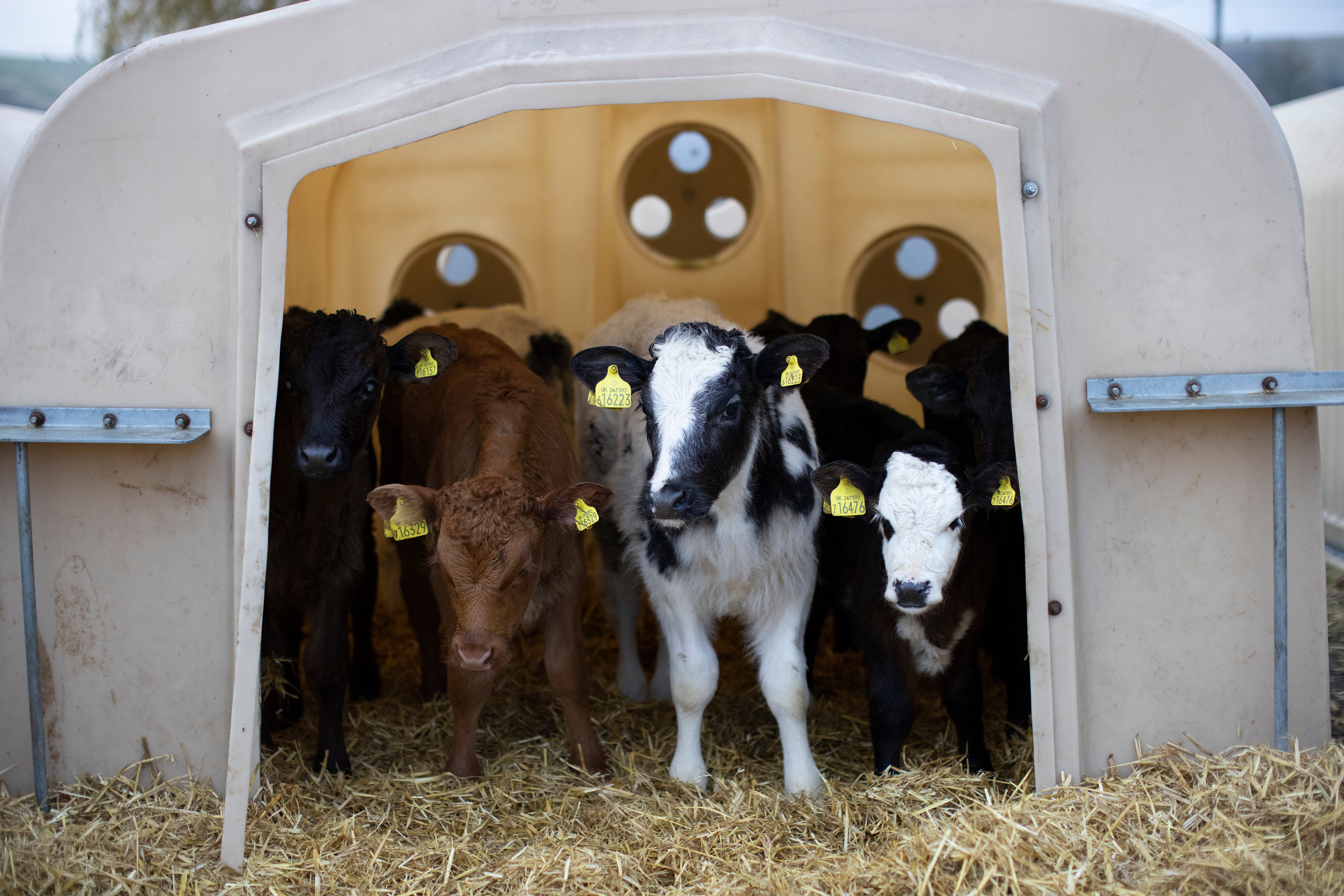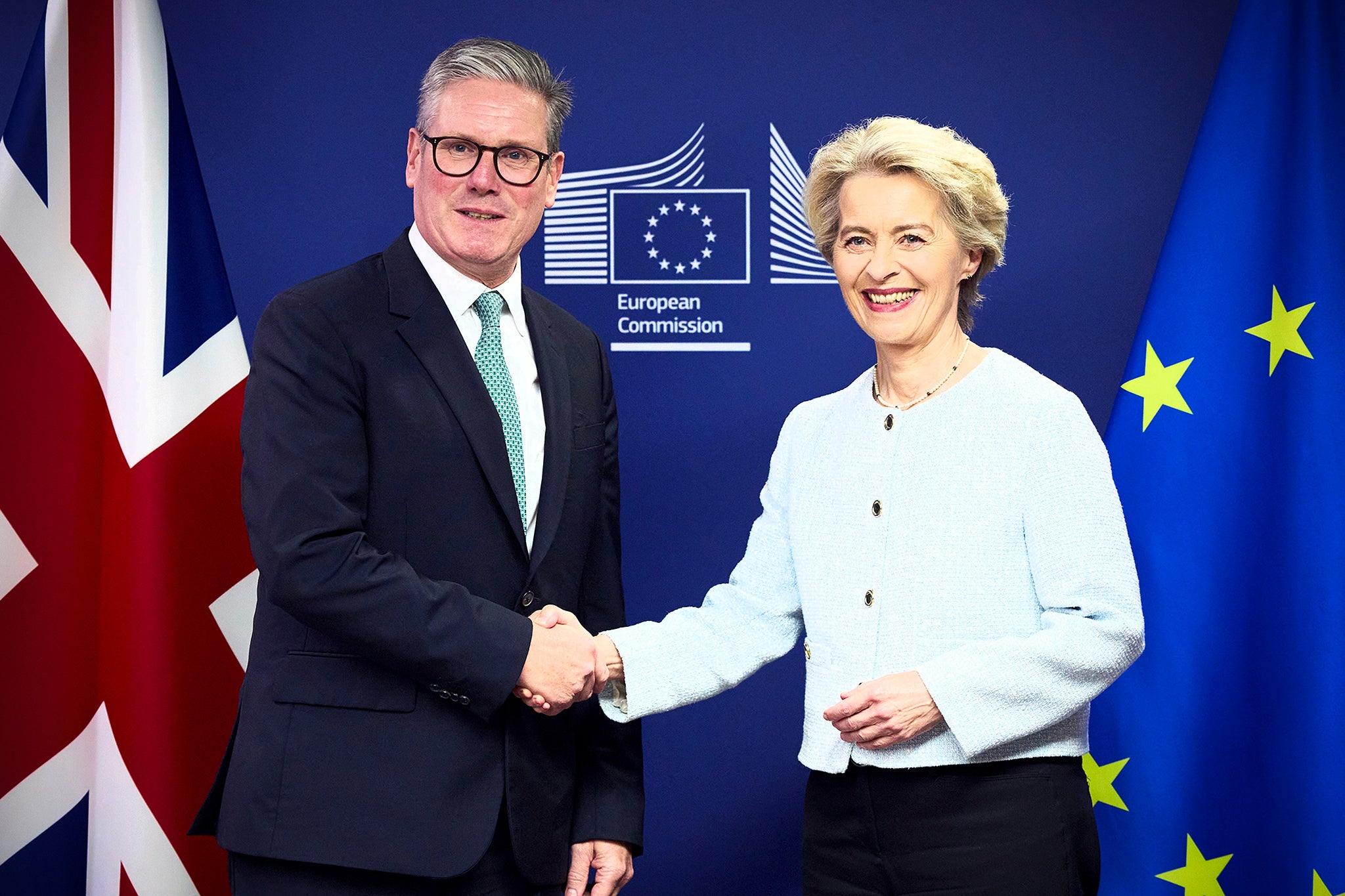Minister reveals alarming drop in British food exports to EU since Brexit
Exclusive: Food sales to the EU have crashed by a fifth since Brexit, a minister has revealed, as Sir Keir Starmer faces mounting pressure to slash red tape for UK firms selling in Europe

Your support helps us to tell the story
From reproductive rights to climate change to Big Tech, The Independent is on the ground when the story is developing. Whether it's investigating the financials of Elon Musk's pro-Trump PAC or producing our latest documentary, 'The A Word', which shines a light on the American women fighting for reproductive rights, we know how important it is to parse out the facts from the messaging.
At such a critical moment in US history, we need reporters on the ground. Your donation allows us to keep sending journalists to speak to both sides of the story.
The Independent is trusted by Americans across the entire political spectrum. And unlike many other quality news outlets, we choose not to lock Americans out of our reporting and analysis with paywalls. We believe quality journalism should be available to everyone, paid for by those who can afford it.
Your support makes all the difference.British food sales to Europe have plummeted by a fifth since 2018, the farming minister has admitted, sparking calls for Labour to slash post-Brexit red tape and strike a food standards agreement with the EU.
Daniel Zeichner said that while the UK’s current deal with the EU allows tariff-free access to the bloc, leaving the single market and customs union has “had an impact on the export of agri-food products”.
“Agri-food trade with the EU has fallen since 2018 in real terms (after adjusting for trade inflation) by 20 per cent (exports) and 11 per cent (imports),” he added.

The figures mark a stunning decline and are particularly pressing as sales to the European Union make up 57 per cent of all UK food exports, making it Britain’s biggest market by far, worth £14bn in 2023.
The Brexit hit is caused by new requirements for physical, documentary and ID checks complicating food trade between the UK and Europe.
But Mr Zeichner said it was difficult to separate the effects of Brexit from global shocks such as the Covid-19 pandemic and the signing of free trade deals with other countries such as New Zealand.
But SNP MP Stephen Gethins, who forced Mr Zeichner to produce the assessment, said the figures showed Brexit had dealt “an entirely self-inflicted blow to the economy and hard-pressed rural communities”.
He told The Independent: “Some of the best food and drink produced anywhere in Europe comes from Scotland and elsewhere in the UK.
“Yet red tape due to the UK unnecessarily leaving the Single Market and the Customs Union has been devastating for those producers.

“A hard Tory Brexit that threw up needless trade barriers is now a policy entirely owned by this Labour government. There is no need for this unnecessary and needless economic pain at a time when the UK continues to underperform economically.”
The revelation came after Rachel Reeves faced another devastating blow as official figures showed the economy had flatlined since Labour’s election victory. The chancellor now faces a major challenge to revive Britain’s economic fortunes or risk failing at Labour’s number one mission to boost growth.
And it comes as Sir Keir Starmer pursues an overhaul of Britain’s post-Brexit relationship with the EU, with the PM chasing closer ties after years of acrimony under successive Tory leaders.
Liberal Democrat EU spokesman James MacCleary said Mr Zeichner’s “stark” response perfectly highlights the challenges facing food exporters post-Brexit.
He told The Independent: “The government’s inability to negotiate a proper veterinary agreement – a common-sense solution many have called for – is a glaring omission.
“The Liberal Democrats have long warned that this botched deal would place enormous red tape on our farmers and food producers, and these figures confirm the damage.
“We can’t afford to let this decline continue. Rebuilding trust and trade with our European neighbours must be a top priority, starting with securing a veterinary and phytosanitary agreement to ease trade barriers.”
Tom Brufatto, policy director at campaign group Best for Britain, said: “Every day that Brexit trade barriers remain in place means less business for British exporters and more costs for importers, and in turn this has artificially inflated the price of the weekly shop.”
Mr Brufatto said that a veterinary or animal health deal with the EU would cut some red tape, but called for a policy of regulatory alignment with the bloc to further remove barriers to trade with Britain’s biggest market.
Economist and former Green MEP Molly Scott Cato said post-Brexit red tape has “hamstrung so many of our UK exporters in ways no one ever imagined”.
Ms Scott Cato, the senior vice chairman of European Movement UK, told The Independent: “As an economist I’m not at all surprised that making trade harder with our largest export market has had a negative impact on our economy. But we don’t have to just take this on the chin. There are actions we can take to address the trade barriers imposed by Brexit. Reaching a veterinary agreement to cut red tape and reduce border checks would be a practical first step.”
And former Liberal Democrat minister Sir Nick Harvey said: “The chancellor can tinker around the edges, but addressing the economic damage done by Brexit must become a priority. We need an inquiry into what our relationship with Europe could look like. Future membership of the single market and customs union must be part of that conversation.”
Mr Zeichner said: “We are working to reset our relationship with our European friends to strengthen ties and tackle barriers to UK-EU trade. We will seek to negotiate a veterinary, sanitary and phytosanitary agreement to boost trade and deliver benefits to businesses.
“We have been clear that our trading relationship can be improved but we are not rejoining the single market or customs union, and we will not return to freedom of movement.”
Join our commenting forum
Join thought-provoking conversations, follow other Independent readers and see their replies
0Comments